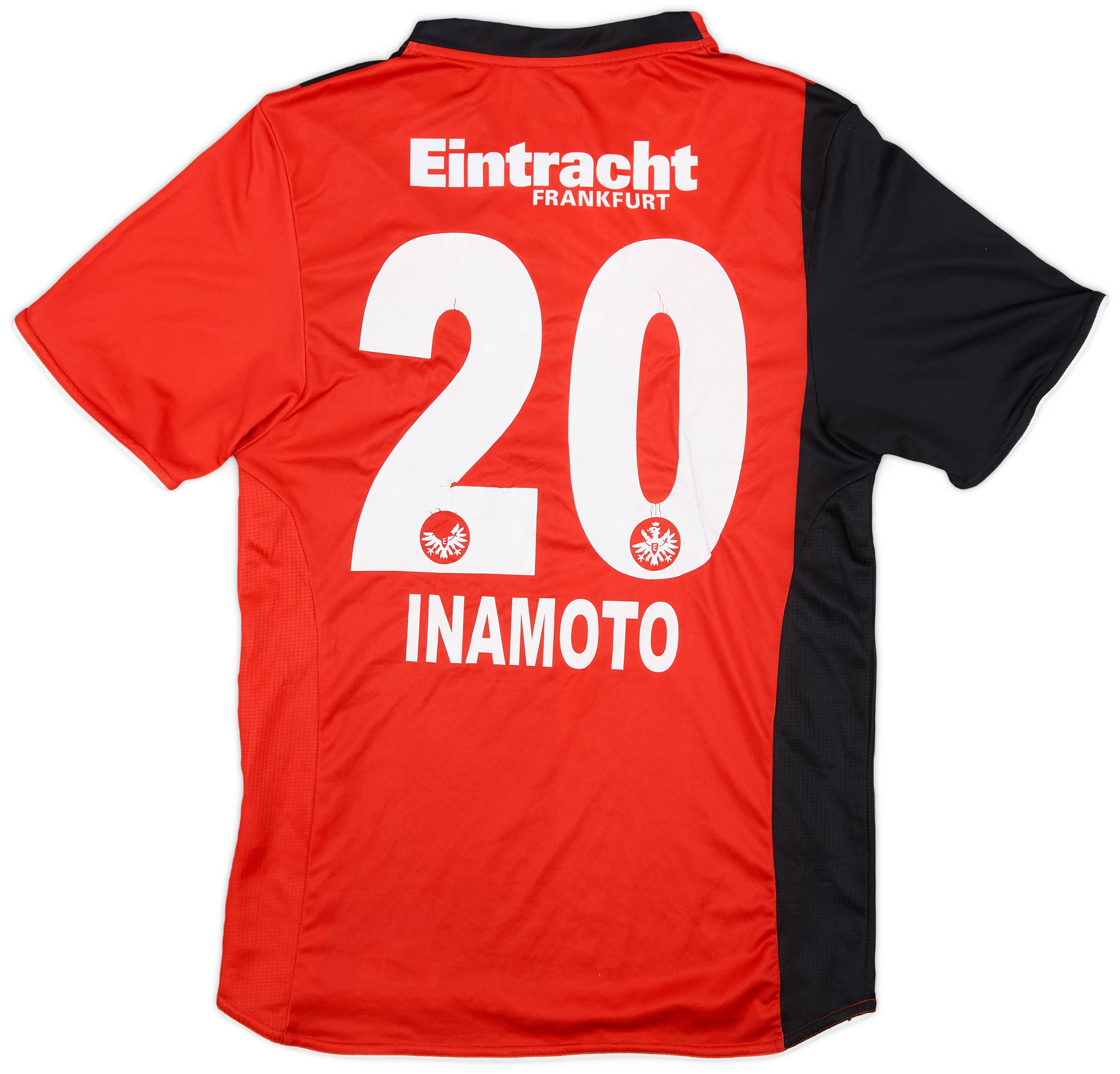Junichi Inamoto
Introduction The retro football shirt of Junichi Inamoto holds a special place in the hearts of football enthusiasts. Inamoto, a talented midfielder, showcased his skills while wearing this iconic shirt. This article explores his career, achievements, notable moments, and the significance of this vintage kit in football history. Player’s Career Junichi Inamoto, born on 18 […]
1999-00 Gamba Osaka Home Shirt #6 (Inamoto) - 9/10 - (L)
207.99£ - ca: €245
2007-09 Eintracht Frankfurt Home Shirt Inamoto #20 - 6/10 - (S)
82.99£ - ca: €98
Introduction
The retro football shirt of Junichi Inamoto holds a special place in the hearts of football enthusiasts. Inamoto, a talented midfielder, showcased his skills while wearing this iconic shirt. This article explores his career, achievements, notable moments, and the significance of this vintage kit in football history.
Player’s Career
Junichi Inamoto, born on 18 September 1979 in Shizuoka, Japan, began his professional football journey with Gamba Osaka in 1998. Over his six-year stint at the club, he made 155 appearances and scored 24 goals. His playing style was characterized by agility, vision, and technical prowess. Inamoto catapulted to international fame during the 2000 Summer Olympics in Sydney, where he helped Japan reach the quarter-finals. In 2001, he joined the English Premier League club Arsenal, making him one of the first Japanese players to compete in the league. Although his time at Arsenal was brief, he showcased his skills before moving to prominent clubs like Fulham and then back to Japan, where he played for several teams, including Yokohama F. Marinos and Nagoya Grampus. Inamoto’s international career with Japan spanned over a decade, accumulating 82 caps and scoring 11 goals.
Achievements
During his time at Gamba Osaka, Junichi Inamoto achieved significant milestones. The most notable was winning the J.League Cup in 2001. His performances in the 1999 Asian Club Championship helped elevate the profile of Japanese football. Inamoto’s move to Arsenal marked a historic moment, as he became the first Asian player to score in the FA Cup. His tenure at Fulham also brought considerable achievements, including the club’s highest-ever league finish, securing a place in the UEFA Europa League.
Notable Moments
One of Inamoto’s most memorable performances came during the 2002 FIFA World Cup. Wearing the retro shirt, he represented Japan in the tournament co-hosted by South Korea and Japan. Inamoto scored two vital goals in the group stage, contributing to Japan’s historic progression to the knockout round. Another notable moment occurred in 2003 when he scored against Birmingham City while playing for Fulham, a goal that solidified his role as a key player in the squad. Throughout his career, Junichi Inamoto consistently brought creativity and tenacity to the pitch, leading to numerous unforgettable matches.
Shirt Design and Features
The retro football shirt worn by Junichi Inamoto is distinguished by its vibrant colors and unique design elements. Dominated by a classic blue hue, the shirt showcases bold white stripes that run along the shoulders. The club badge is prominently displayed on the left chest, symbolizing Inamoto’s dedication to Gamba Osaka. The fabric features breathable and lightweight materials, ensuring comfort during intense matches. This shirt not only represents the style of the early 2000s but also serves as a nostalgic reminder of a period where football fashion began to evolve.
Fan Significance
The significance of Junichi Inamoto’s retro shirt transcends mere fabric. For many fans, it embodies an era of growth and international recognition for Japanese football. The shirt evokes memories of thrilling matches and iconic moments. Inamoto’s contributions to both Gamba Osaka and the Japanese national team made him a celebrated figure. Fans often reminisce about watching him play, adorned in that blue shirt, leading his team with skill and passion. Collectors also treasure the retro shirts as a symbol of nostalgia for a golden era in Japanese football.
Conclusion
In conclusion, the retro football shirt worn by Junichi Inamoto stands as a testament to his remarkable career and the legacy he left in football history. His achievements, iconic moments, and the distinct design of the shirt continue to resonate with fans and collectors. As time passes, this shirt remains a cherished artifact, symbolizing the evolution of football and the players who inspired generations. Junichi Inamoto’s influence on the game and the pride he brought to Japanese football will never be forgotten.

